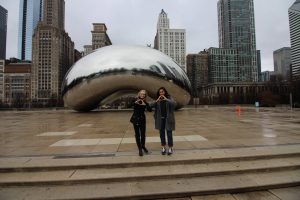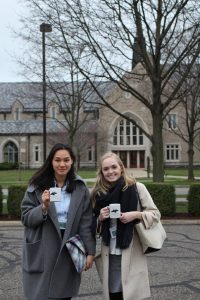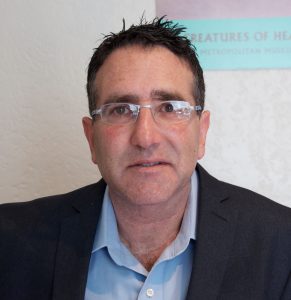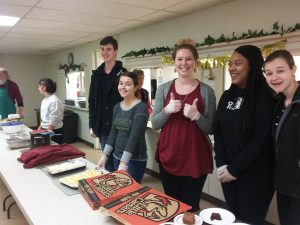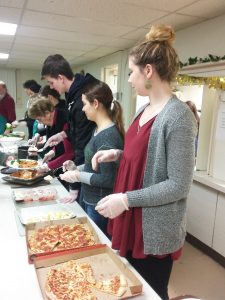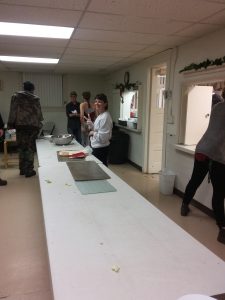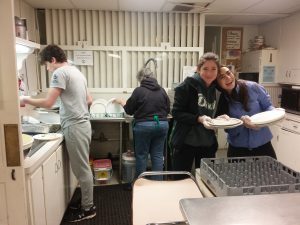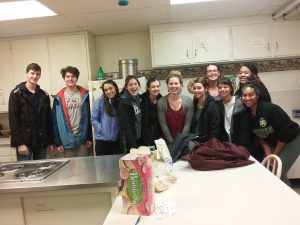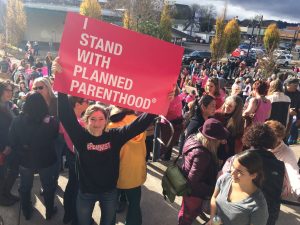By: Harley Emery
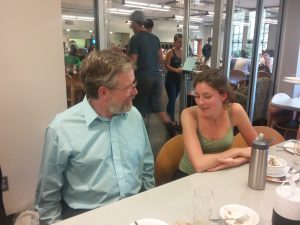 On May 3rd, CGO welcomed Rev. Dan Bryant from the First Christian Church in Eugene as the special guest of the week. Rev. Bryant shared his fascinating life story with CGO, telling of his time as an early adult working on reconciliation projects with a Christian ministry in Berlin in the late 1970s. ……..
On May 3rd, CGO welcomed Rev. Dan Bryant from the First Christian Church in Eugene as the special guest of the week. Rev. Bryant shared his fascinating life story with CGO, telling of his time as an early adult working on reconciliation projects with a Christian ministry in Berlin in the late 1970s. ……..
One major topic that was discussed with Rev. Bryant was how religion (and particularly Christianity) can not only coexist with but can support progressive thought and inclusivity. Rev. Bryant told of how several decades ago, the church’s congregation gradually became more accepting of non-heterosexual orientations, and how today the congregation is very inclusive and open-minded in regards to this issue. More recently, Rev. Bryant has focused on ensuring that people who are transgender feel welcomed by his church, and it seems that this process has been largely successful so far. Rev. Bryant explained that this progress has been a result of connecting members of the congregation with people who are of non-heterosexual orientations and people who are transgender. When church-goers realized that several fellow members of the congregation – including a church musician – were not heterosexual, and that some had close family members who were transgender, a transformation of sorts occurred. Although there has been some backlash to Rev. Bryant’s progressive interpretations of Biblical passages and policies of inclusivity, the congregation has primarily stood behind these efforts.
Along with promoting values of inclusivity within the church, Rev. Bryant has spearheaded and participated in countless projects including several aimed to increase understanding among religions and many projects to address the problem of homelessness in the community. Among the many community-building initiatives Rev. Bryant has been a part of over the years is an interfaith service – the longest running (and possibly only) regular service in the country – which he began immediately following 9/11 as a response to the many religious hate crimes and violent acts that swept across the country after the attacks. The service was intended to be a one-time event, but the impact it had on attendees (who represent an estimated nearly 30 different faiths) was so powerful that it has continued as a monthly event to this day.
The church’s initiatives to aid homeless members of the community include free weekly breakfasts and a warming center open during cold winter nights, which can literally be life-saving for much of the homeless population when temperatures drop. Rev. Bryant also spoke of an ongoing project that he has been working on in collaboration with many local architects, the City of Eugene, and other local groups. The project – which is to be completed in the coming months – will provide a number of affordable houses to homeless community members who cannot afford the rising housing costs in the area. These single-bedroom one-bathroom homes with kitchens will cost an average of $250-$300 a month, and will act as a source of stability and security for many currently-homeless individuals who would otherwise be left on the streets.
Rev. Bryant’s visit to CGO was surely inspiring to all in attendance. He was an incredible example of a prominent religious leader who is also very open-minded, respectful of other faiths, and engaged in the community in a way that is not simply evangelical, but rather genuinely aims to assist those in need while allowing them to maintain their dignity and agency.
